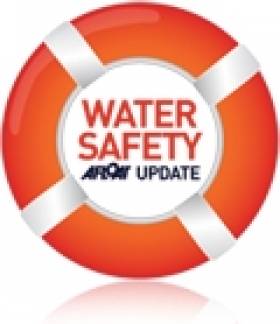Displaying items by tag: The Magazine
NI Lifeguards To Feature In New TV Series
#WaterSafety - RNLI lifeguards in Northern Ireland are to feature on a new television series on UTV.
The Magazine starts on Sunday 7 April at 7.30pm with host Sarah Travers in her home town of Portstewart to introduce viewers to some of her favourite people, places and topics.
As part of the first programme, TV presenter Emma-Rosa Dias will find out what it takes to be a lifeguard with the RNLI when she visits the charity’s area support centre in Ballymoney - before being put through her paces by RNLI lifeguard supervisor Tim Doran to see if she is ready for the challenge.
After a test in the swimming pool, Dias experiences a slice of the real thing when she pays a visit to Portrush East Strand on the Causeway Coast, one of the five beaches in Northern Ireland which begins its Easter season on Good Friday tomorrow 29 March.
As previously reported on Afloat.ie, this lifeguard cover will run throughout Easter week until Sunday 7 April.
Filming took place on Monday afternoon and despite the unseasonal weather, the charity’s highly trained lifeguards took the opportunity to demonstrate that they will be ready to assist the visitors who will brave the elements and take a trip to the seaside over the Easter break.
Speaking following the afternoon’s shoot, Tim Doran said filming with UTV was a great way to show how highly trained RNLI lifeguards are.
"Our lifeguards spot potential dangers before they develop, and are on hand to give appropriate safety advice and respond immediately if anyone gets into difficulty," he said. "Because our lifeguards work closely alongside our volunteer lifeboat crews, it means the RNLI offers beach-goers and water-users a seamless rescue service from beach to open sea."
While Easter is often the time when people are getting back in the water after the winter, and while it’s good to see people enjoying the beaches, the RNLI is encouraging visitors to make sure they have the right kit to keep warm.
"It’s much colder now then it was this time last year," Doran added, "and our lifeguards will be wrapping up and we’d encourage everyone else to do the same. So, if you are heading into the sea, make sure you’re wearing a good wetsuit or drysuit, go with other people and keep an eye on each other.
"Keeping warm in cold weather can take a lot of energy, so fatigue can be an issue, plus watch out for the wind chill factor – even a slight breeze can have a dramatic effect on how cold it feels."
Meanwhile, to find out how Emma-Rosa Dias gets on, tune into UTV at 7.30pm on Sunday 7 April.
























































